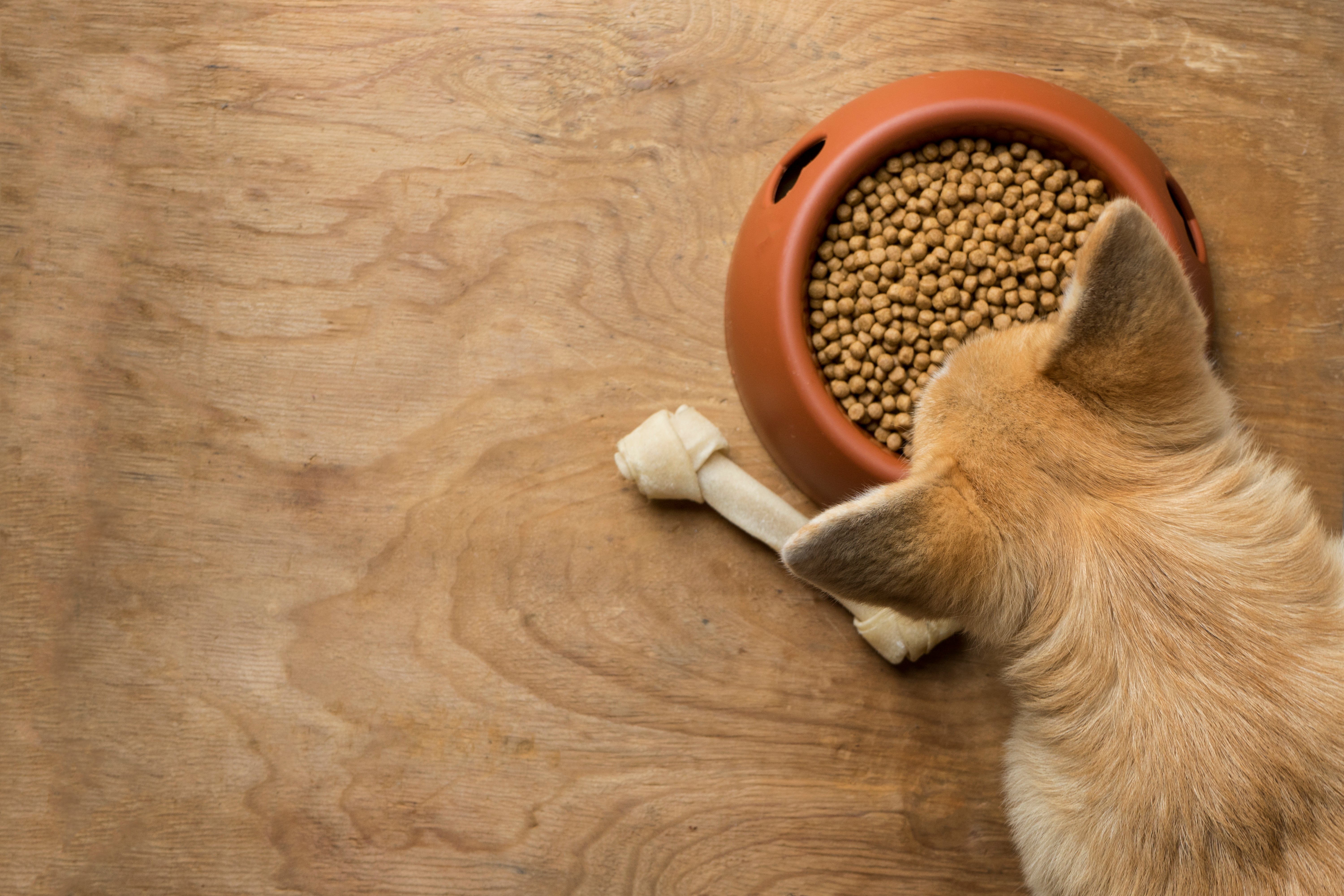[ad_1]
Diets are all the time coming and going, and persons are all the time making an attempt new methods to drop a few pounds. Whether or not it’s counting energy, keto, or one thing comparable, one weight loss plan you that’s been rising in recognition is intermittent fasting. Analysis exhibits that intermittent fasting is usually protected for people and promotes average weight reduction. In case your canine is chubby, it’s possible you’ll need to take into account comparable diets which have labored so that you can assist them shed a number of kilos. However is intermittent fasting for canines really protected?
Since weight problems in canines places them at higher danger for well being issues, equivalent to most cancers and coronary heart illness, some may take into account intermittent fasting as an choice to hold our canines at a wholesome weight. However even small modifications to our canines’ weight loss plan can have penalties for his or her well being. Canines have particular dietary necessities that may change, relying on their age, exercise stage, and any underlying well being points. Earlier than adjusting your canine’s weight loss plan in any method, speak to your veterinarian.
Digestion and Fasting in Wolves and Canines
Wild wolves must hunt or scavenge for meals, and undergo durations of fasting. As a result of canine and wolves share genetic similarities, some individuals may suppose intermittent fasting may very well be protected for canines. Nonetheless, we don’t know a lot concerning the particular wolf populations that had been canines’ closest ancestors. Researchers suspect that canines are descendants of a now-extinct relative of the gray wolf, however when and the way this evolution occurred stays unclear. Regardless, canines and wolves will not be interchangable and will not be the identical, so issues like diets for one is probably not protected for the opposite.
In distinction, as canines turned domesticated, their digestive programs tailored in response to residing with people. Studying to grasp verbal cues and cooperate with people meant that canines had extra dependable entry to meals and didn’t must undergo as many durations of fasting. “Canines have the flexibility to digest sure carbohydrates that wolves usually don’t,” says Dr. Jerry Klein, DVM, Chief Veterinary Officer for the American Kennel Membership. “The surroundings of canines has allowed the variation of their intestine microbiota to deal with a starch-rich weight loss plan.”
Intermittent Fasting for Canines
There are a number of ways in which people apply intermittent fasting, equivalent to not consuming throughout sure hours of the day or particular durations of the week. Advocates of intermittent fasting for canines have advised that it could actually profit a canine’s immune system, digestive well being, cognitive operate, and longevity. “These are principally anecdotal stories and never scientific research,” notes Dr. Klein.
Since hospitalized canines are vulnerable to underfeeding and depressed immunity, researchers performed a examine on the results of intermittent fasting on immune well being in wholesome canines solely. They randomly assigned 10 wholesome canines to a few completely different feeding regimens. Canines within the intermittent fasting group tended to lose extra weight and had decrease blood glucose and insulin concentrations. Fasting didn’t trigger immunosuppression, however the pattern dimension was small and solely contained wholesome canines.


The hyperlink between how regularly you feed your canine and numerous well being outcomes has additionally been a topic of examine within the Canine Getting older Challenge. Since 2019, researchers have been gathering data on over 24,000 companion canines to find out how genetic, life-style, and environmental components have an effect on the growing old course of. Included within the examine are canines of all ages, sizes, and breeds.
In line with knowledge from the examine, canines fed as soon as a day had fewer well being issues, together with cognitive dysfunction, gastrointestinal points, dental illness, orthopedic issues, kidney or urinary issues, and liver or pancreatic problems. Though this was differentiated between canines by the speed of which they had been fed, the decreased well being issues can’t be solely attributed to that. Extra analysis is required to ascertain a direct cause-and-effect relationship between once-daily feeding and improved well being, versus different contributing components.
When Ought to I Quick My Canine?
You must solely quick your canine after consulting your veterinarian and being suggested to take action. For instance, in case your canine is experiencing gastrointestinal points equivalent to diarrhea or vomiting, your veterinarian may advocate briefly fasting your canine. Usually, your canine would quick for 12 to 24 hours and solely devour water throughout this era, Dr. Klein explains.
As your canine’s situation improves, you’ll be able to steadily introduce a small quantity of bland meals equivalent to pumpkin or plain boiled white rice. This permits time for the gastrointestinal tract to relaxation and for any irritation to clear.
No matter their feeding routine, your canine all the time wants entry to contemporary consuming water. Dr. Klein explains that canines usually tend to endure in poor health results and die from dehydration than malnourishment.
When to Keep away from Fasting Your Canine
Typically, our purpose is to maintain our canines match and lean. Intermittent fasting “ought to solely be thought-about in wholesome, grownup canines,” says Dr. Klein. He advises that fasting must be thought-about solely after an intensive dialogue with a veterinarian or a board-certified veterinary nutritionist. An skilled ought to provide help to decide if there’s a want for fasting or if it’s the most effective strategy on your canine. That stated, intermittent fasting is not applicable within the following conditions:
“Applicable every day feeding, utilizing minimal low-calorie treats, avoiding desk scraps, and exercising them frequently [is best],” Dr. Klein explains, “somewhat than having to resort to fasting.” For grownup canines engaged in regular actions, you’ll be able to take into account feeding them as soon as a day.
Though intermittent fasting is having a resurgence amongst individuals, there are dangers after we apply these dietary practices to our canines. “Canines have completely different metabolisms and dietary necessities than individuals and most different animals,” Dr. Klein says. His recommendation is to feed your canine a whole and balanced weight loss plan as directed by your veterinarian and the pet food’s label.
[ad_2]
Supply hyperlink
